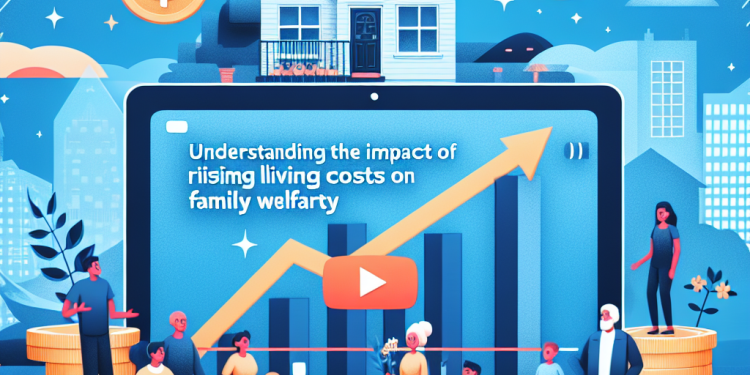Important Information On Using This Service
- Ergsy carefully checks the information in the videos we provide here.
- Videos shown by YouTube after a video has completed have NOT been reviewed by ERGSY.
- To view, click the arrow in the center of the video.
Using Subtitles and Closed Captions
- Most of the videos you find here will have subtitles and/or closed captions available.
- You may need to turn these on and choose your preferred language.
Turn Captions On or Off
- Go to the video you'd like to watch.
- If closed captions (CC) are available, settings will be visible on the bottom right of the video player.
- To turn on captions, click settings.
- To turn off captions, click settings again.
Find A Professional
The importance of a positive mental attitude (PMA)
It is not unusual for people faced with redundancy to feel down in the dumps, sad, worried, or rejected.
Developing and maintaining a Positive Mental Attitude is hugely important when it comes to pushing through any tough situation, and your overall well-being and success. Firstly, cultivating self-awareness is key. Reflect on thoughts and identify negative patterns to replace them with constructive ones. Acknowledging positive aspects of life enhances optimism. Focus on solutions rather than dwelling on problems, fostering a proactive mindset.
Stay Positive and reject the negatives
Surrounding oneself with positive influences is vital. Associating with supportive individuals who inspire and encourage creates an uplifting environment. Engaging in activities that bring joy and relaxation contributes to a positive mental state. Regular exercise has proven benefits, releasing endorphins that elevate mood and reduce stress.
Set yourself goals
Setting realistic goals provides a sense of accomplishment. Break larger objectives into smaller, achievable steps, celebrating successes along the way. Embracing challenges as opportunities for growth fosters resilience. Learning from setbacks instead of dwelling on failures promotes a forward-looking perspective.
Do what works for you
Mindfulness and meditation are powerful tools for cultivating a positive mental attitude. These practices encourage living in the present moment, reducing anxiety about the future or regret about the past. Finally, fostering a sense of humor and finding joy in everyday moments adds lightness to life. In sum, creating a positive mental attitude involves intentional actions, mindfulness, supportive relationships, and a focus on personal growth.
Choose techniques that work for you, and do not be afraid to ask for help along the way. See the links section below for organisations that may be able to help you.
Redundancy Coaching Couch 3: States
Understanding Redundancy
Redundancy can be a challenging and emotional experience for individuals. In the United Kingdom, redundancy occurs when an employer needs to reduce their workforce, often due to economic pressures, technological advancements, or operational changes. This situation can lead to a range of emotional states that require effective management and support.The Emotional States of Redundancy
Shock and Denial
The initial news of redundancy often triggers shock and denial. Employees may find it hard to believe that they are being made redundant, especially if they have long-term service or had positive performance reviews. This stage is characterized by disbelief and a feeling of numbness.Anger and Frustration
Following the initial shock, individuals may experience anger and frustration. These emotions are a natural response to feeling undervalued and powerless. It's common for individuals to direct their anger towards their employer, colleagues, or even themselves.Bargaining and Searching for Alternatives
In an attempt to make sense of the situation, employees may enter a bargaining phase. They might search for ways to avoid redundancy, such as proposing alternative solutions to their employer, seeking internal transfers, or even accepting lower positions.Depression and Acceptance
As the reality of redundancy sets in, it can lead to feelings of sadness and depression. Employees might struggle with low self-esteem, anxiety about their future, and financial concerns. Acceptance is the final stage where individuals come to terms with the redundancy, enabling them to move forward and consider new opportunities.The Role of Redundancy Coaching
Providing Emotional Support
Redundancy coaches are skilled in offering emotional support to individuals facing redundancy. They help clients navigate through the various emotional states, providing a safe space to express their feelings and concerns.Career Transition Assistance
A significant aspect of redundancy coaching is helping individuals transition to new career opportunities. Coaches assist in identifying transferable skills, updating CVs, preparing for interviews, and exploring job search strategies tailored to the UK job market.Building Resilience and Confidence
Redundancy coaching focuses on building resilience and confidence. Through targeted strategies, such as goal setting, personal branding, and skill development, coaches empower individuals to approach the job market with a positive mindset.Conclusion
Redundancy in the United Kingdom can trigger a range of emotional states that need careful handling. Redundancy coaching offers crucial support through emotional guidance, career transition assistance, and confidence-building strategies. By addressing these areas, coaches help individuals emerge stronger and more prepared for their next career chapter.The importance of a positive mental attitude (PMA)
Sometimes, when people lose their jobs, they might feel sad, worried, or not good enough. This is normal.
Having a Positive Mental Attitude is very important. It helps us feel better and do well in life. First, we need to notice our thoughts. We should try to change any bad thoughts into good ones. Think about the good things in life to feel more hopeful. It is important to think about how to solve problems instead of just worrying about them.
Stay Positive and reject the negatives
Being around happy and supportive people is very important. Friends and family who make us feel good can help us stay happy. Doing things we enjoy can make us feel good and relaxed. Exercise is also great because it makes us feel happier and less stressed.
Set yourself goals
Setting goals that we can reach helps us feel proud. If a big goal feels too hard, we can break it into smaller, easy steps. Celebrate each small win! When things are hard, see them as chances to grow. Instead of feeling bad about mistakes, learn from them, and keep looking forward.
Do what works for you
Practices like mindfulness and meditation can help us stay calm. They teach us to enjoy the present moment and not worry too much about the future or past. Having a good laugh and finding fun things in everyday life can bring happiness. Creating a positive attitude means we should take actions, be mindful, have good friends, and focus on getting better.
Find what works for you, and remember, it’s okay to ask for help. Check out the links section for organizations that can offer support.
Redundancy Coaching Couch 3: States
Understanding Redundancy
Redundancy means losing your job because the company needs fewer workers. In the UK, this can happen because of money problems, new technology, or other changes at work. Losing a job can make you feel many emotions, like being sad or upset. It's important to get help and support.The Emotional States of Redundancy
Shock and Denial
When you first hear about losing your job, you might feel shocked. It’s tough to believe, especially if you’ve worked there for a long time or have had good reviews. You might feel numb and think, "This can’t be happening."Anger and Frustration
After shock, you might feel angry. This is normal. You might feel like you weren’t valued enough. You could be upset with your boss, coworkers, or even yourself.Bargaining and Searching for Alternatives
You might start thinking of ways to keep your job. You could try suggesting ideas to your boss, looking for a different job in the company, or even taking a pay cut.Depression and Acceptance
As time goes on, you might feel very sad or worried about the future. You may also stress about money. In the end, you can reach acceptance, where you understand the situation and start thinking about new opportunities.The Role of Redundancy Coaching
Providing Emotional Support
Redundancy coaches help people feel better about losing their jobs. They listen and let you share your feelings in a safe space.Career Transition Assistance
Coaches help you find new jobs. They work with you to figure out your skills, make your CV better, get ready for interviews, and learn how to look for jobs in the UK.Building Resilience and Confidence
Coaches also help you feel strong and confident. They use strategies like setting goals, developing personal brands, and improving skills to make you feel ready to find a new job.Conclusion
Losing a job in the UK can make you feel many emotions. Redundancy coaching helps by giving support and guidance. Coaches help you with your feelings, finding new careers, and boosting confidence. This support helps you become stronger and ready for the next chapter in your life. Here are some tools and techniques that can help: - Use simple planners or checklists to keep track of what you need to do next. - Try calming activities like deep breathing or mindfulness to manage stress. - Ask for help from friends, family, or support groups when needed.Frequently Asked Questions
What is redundancy coaching?
Redundancy coaching is a support service designed to help individuals navigate the emotional and practical aspects of job loss. It aims to provide the skills, tools, and confidence needed to secure new employment.
Who can benefit from redundancy coaching?
Anyone facing redundancy or at risk of losing their job can benefit from redundancy coaching, regardless of their position or industry.
How does redundancy coaching work?
Redundancy coaching typically involves one-on-one or group sessions with a coach. These sessions may cover topics such as CV writing, interview preparation, job search strategies, and emotional resilience.
How long does redundancy coaching usually last?
The duration of redundancy coaching can vary, but it often lasts between a few weeks to several months depending on the individual's needs and the specific programme.
Will my employer pay for redundancy coaching?
Some employers may offer redundancy coaching as part of their redundancy package. It's best to check with your HR department to see if this support is available.
Can I choose my own redundancy coach?
If your employer provides redundancy coaching, they may have a preferred provider. If you are arranging it yourself, you have the freedom to choose your own coach.
What qualifications should a redundancy coach have?
A qualified redundancy coach typically has certifications in coaching or career counselling, as well as experience in HR or recruitment. It's important to check their credentials and experience.
How do I prepare for redundancy coaching sessions?
To prepare for redundancy coaching, gather your employment documents, update your CV, and make a list of career goals and any specific challenges you face.
What if I don't find a job before my redundancy coaching ends?
If you haven't secured a job by the end of your coaching sessions, your coach may offer follow-up support or additional sessions to help you continue your job search.
Can redundancy coaching help with a career change?
Yes, redundancy coaching can be particularly useful if you are considering a career change. Coaches can provide valuable insights and strategies for transitioning to a new field.
What is the cost of redundancy coaching?
The cost of redundancy coaching varies depending on the coach's experience, the length of the programme, and the level of support provided. Some coaches offer package deals or sliding scale fees.
How can redundancy coaching improve my job search?
Redundancy coaching can improve your job search by helping you refine your CV, hone your interview skills, broaden your networking strategies, and boost your overall confidence.
Is redundancy coaching confidential?
Yes, redundancy coaching sessions are confidential. Coaches are committed to maintaining your privacy and will not share information without your consent.
What if I'm feeling overwhelmed or demotivated?
Redundancy coaching addresses both the emotional and practical aspects of job loss. Coaches offer emotional support and strategies to stay motivated during your job search.
Are there any online resources for redundancy coaching?
Yes, many redundancy coaches offer online resources such as webinars, downloadable guides, and virtual coaching sessions to support your job search remotely.
What is redundancy coaching?
Redundancy coaching helps people find a new job after they lose their current job. A coach is like a friendly guide who helps you learn what to do next. They can help you with your resume, practice job interviews, and teach you new skills to get a new job. The coach is there to support you and give advice.
If you want extra help with reading or understanding, you can ask a friend or family member to read with you. You can also use tools like audiobooks to listen instead of reading.
Redundancy coaching helps people who have lost their jobs. It supports them with the feelings and problems that come with not having work. This coaching helps people learn new skills, find the tools they need, and feel good about finding a new job.
Who can get help from redundancy coaching?
If you might lose your job, or if you already have, you can get help. This help is called "redundancy coaching." It can help anyone, no matter what job you have or where you work.
What is redundancy coaching and how does it help?
When you get help after losing a job, it is called redundancy coaching. You can have one-on-one talks with a helper, or join a group session with others.
In these talks, you might learn how to write a CV, get ready for interviews, and find new jobs. You will also learn how to stay strong and feel better during this time.
How long does help with losing a job usually last?
When you lose your job, you can get help from a special teacher. This is called "coaching."
This help usually lasts a few weeks to a few months. But everyone is different.
Some people need more help, and some people need less.
If you want help to be longer or shorter, you can talk to your teacher about it.
You can also use things like a calendar or notebook to keep track of your progress. This can make it easier to remember what you learn.
Redundancy coaching means getting help when you lose your job. It can last a few weeks or a few months. It depends on what you need.
Will my boss pay for help if I lose my job?
If you lose your job, will your boss help you by paying for coaching? Coaching means getting advice and support to find a new job. Here are some tools that can help you understand: - **Ask a Friend or Family**: Talk to someone you trust to help you understand. - **Use Simple Words**: Break down the question into smaller parts. - **Write it Down**: Sometimes writing out the question can help make it clearer.Some jobs might give you help when you are losing your job. This help is called redundancy coaching. Ask the people in charge of hiring and firing at your job, usually called HR, to see if you can get this help.
Can I pick my own coach to help me with redundancy?
If you are losing your job, you might get a coach to help you. A coach can give you advice and support. You might want to choose your own person to be your coach.
Here are some helpful tips:
- Ask if you can choose your own coach.
- Make a list of people you think can help.
- Talk to them and see if they can be your coach.
Good tools to help you talk to your coach:
- Write down questions you have.
- Use video calls if you can't meet in person.
- Keep notes of what your coach says.
If your job gives you help with losing your job, they might have someone they like to work with. If you are finding help by yourself, you can pick your own helper.
What should a job loss coach know?
A job loss coach helps you when you lose your job. Here's what they should know:
- They should know a lot about jobs and work.
- They should be good at talking and listening to you.
- They should be nice and understand your feelings.
- They can help you feel better and find a new job.
Ask them questions to see if they can help you.
A redundancy coach helps people who have lost their jobs. They usually have special training and certificates to do this. They also know a lot about hiring and helping people find new jobs. It's good to see if they have the right skills and experience to help you.
How can I get ready for job loss help sessions?
Get ready to talk about losing your job. Find your work papers, make your CV (the paper that shows what jobs you have done) up to date, and write down what you want to do for work next. Also, think about any problems you might have with getting a new job.
What if I do not get a new job before my help ends?
If you do not have a new job before your help with finding one stops, do not worry. There are still things you can do.
Here are some ideas:
- Ask for help from friends or family.
- Look online for job search websites.
- Go to your local job center for more support.
- Practice for interviews at home.
Remember, finding a job can take time. Keep trying, and do not give up!
If you do not have a job after your coaching sessions, your coach might help you more. They could give you extra help or more sessions to keep looking for a job.
Can a coach help you if you lose your job and want a new one?
Yes, talking to a coach can help if you want to change your job. Coaches can give you good advice and help you find ways to start in a new job area.
How much does it cost for help when you lose your job?
The cost of getting help when you lose your job can be different. It depends on how much experience the helper has, how long they help you, and how much support they give. Some helpers might offer special prices or let you pay what you can afford.
How can getting help after losing my job make it easier to find a new one?
When you lose a job, it can be hard to find a new one. Getting help from a coach can make it easier. A coach is like a helper who knows a lot about finding jobs.
Here are some ways a coach can help you:
- Help you write a good resume.
- Practice how to talk in job interviews.
- Show you where to look for jobs.
- Give you confidence and support.
When you have someone to guide you, looking for a job can be less scary and more successful.
Redundancy coaching can help you find a new job. It can make your CV better, help you with job interviews, teach you how to meet new people, and make you feel more confident.
Will my conversations in redundancy coaching stay private?
When you talk to a redundancy coach, what you say is private. This means they should not tell anyone else what you talked about.
If you are unsure, you can ask the coach, "Will you keep what I say private?"
It's good to use friendly tools like pictures or notes to help remember. You can also ask someone you trust to join and help you feel comfortable.
Yes, your talks with the coach are private. The coach will keep your information secret and won't tell anyone else unless you say it's okay.
What can I do if I feel worried or not interested in things?
Losing a job can feel very hard. Redundancy coaching helps with feelings and finding a new job. Coaches are like helpers. They help you feel better and give tips to keep trying until you find a new job.
It is also good to talk about your feelings with someone you trust. Some people find it helpful to make a list of what they can do next. You can make a plan or set small goals to keep you moving forward.
Can I find help on the internet for finding a new job?
If you have lost your job, there are websites that can help. These websites teach you how to look for a new job. They can give you advice and support.
Here are some ways you can get help:
- Look for videos that teach you new skills.
- Join online groups where people talk about finding jobs.
- Use websites that show you how to write a good resume.
Asking someone for help on these websites can also be a good idea.
Yes, many coaches can help you if you lose your job.
They give help on the internet, like:
- Online classes you watch on your computer
- Guides you can read or print
- Talking with you on a video call to help you find a job
Useful Links
Useful links from: HOW A REDUNDANCY WORKS - General Information
- NHS - Redundancy This NHS page provides information on how redundancy can affect mental health and offers advice on coping strategies and support services.
- Citizen's Advice - Redundancy Citizen's Advice offers comprehensive information on redundancy, including rights, redundancy pay, notice periods, and where to get further help.
- Acas - Redundancy Handling Acas provides detailed guidance on redundancy processes, including legal requirements, proper consultations, and handling redundancies fairly.
- Mind - Mental Health and Redundancy Mind, a leading mental health charity in the UK, offers advice on coping with the emotional impact of redundancy and where to find further support.
Useful links from: Redundancy Crusader and Annabel Kaye on making redundancy a better experience (2).MTS
- Redundancy Crusader - Support for Redundancy Redundancy Crusader provides practical guidance and resources to help individuals navigate through redundancy, including legal advice and emotional support.
- Annabel Kaye - Employment Law Specialist Annabel Kaye offers expertise in employment law and works to make redundancy processes more humane and legally compliant for both employers and employees.
- Mind - Mental Health Support Mind is a UK-based charity that offers support and information to help those experiencing mental health issues, including difficulties arising from redundancy.
- NHS - Redundancy and Mental Health The NHS provides resources and advice on coping with the mental health impacts of redundancy, helping individuals manage stress and anxiety.
Useful links from: Redundancy Coaching Couch 2: Redundancy and Passion
- NHS Live Well - Redundancy The NHS Live Well page offers advice on redundancy and its impact on mental health, along with tips for managing stress and staying healthy.
- Mind - Money and Mental Health Mind, a mental health charity, provides resources and guidance on managing the emotional and psychological aspects of financial worries, including those stemming from redundancy.
- Citizens Advice - Redundancy Citizens Advice offers comprehensive information on redundancy rights, processes, and the support available to individuals facing redundancy.
- Samaritans - Whatever you're going through, call us free any time Samaritans provides confidential emotional support for people who are experiencing feelings of distress or despair, including those affected by redundancy.
Useful links from: Redundancy Coaching Couch 4:Redundancy and Language
- NHS - Coping with Redundancy NHS resource on managing and coping with the stress and emotional impact of redundancy.
- Mind - Redundancy Mind charity provides information and support for maintaining your mental health if you’re facing redundancy.
- Citizens Advice - Redundancy Citizens Advice offers practical guidance and advice on redundancy rights and what to do after being made redundant.
- Rethink Mental Illness - Redundancy Rethink Mental Illness provides advice on dealing with redundancy and unemployment, focusing on mental health support.
Useful links from: Redundancy Crusader and Annabel Kaye on scope and scale of redundancy (3).MTS
- Redundancy Crusader - Understanding Redundancies This site provides comprehensive information on the causes and management of redundancies, including legal requirements and best practices.
- Annabel Kaye - Employment Law Specialist Annabel Kaye offers expert advice on employment law, including redundancy processes and policies within the UK.
- NHS Employers - Redundancy and Redeployment NHS Employers provides guidelines and support regarding redundancy and redeployment within the NHS, covering legal aspects and employee support.
- NCVO - Managing Redundancies in Charities The National Council for Voluntary Organisations (NCVO) offers resources and advice on handling redundancies in UK-based charities, ensuring legal compliance and best practices.
Useful links from: Redundancy Coaching Couch 7: Redundancy and Judgement.MTS
- NHS - Coping with Redundancy Learn how to manage and cope with redundancy and its impacts on mental health. This page provides practical steps and resources to help you deal with the changes and emotions that come with job loss.
- Mind - Work Issues Mind, the mental health charity, offers support and advice on dealing with work-related issues including redundancy. They provide various resources and information to help maintain mental well-being during challenging times.
- Samaritans - Job Loss and Financial Worries Samaritans provide emotional support to anyone in distress or struggling to cope, including those facing job loss and financial concerns. Access their services for confidential support and guidance.
- Rethink Mental Illness - Stress at Work Rethink Mental Illness offers information and resources to help manage stress at work and addresses related mental health issues. Find practical advice for coping with redundancy and maintaining your mental health.
Useful links from: Redundancy Crusader and Annabel Kaye on the Current Model of Redundancy (1).MTS
- Redundancy Crusader Redundancy Crusader offers comprehensive support and advice for individuals facing redundancy, including resources for understanding your rights and navigating the redundancy process in the UK.
- Annabel Kaye's Official Website Annabel Kaye is an employment law specialist. Her website provides insights into the current model of redundancy, legal advice, and HR policy updates tailored for UK-based employers and employees.
- NHS - Your Rights at Work The NHS provides essential information on employee rights, including those facing redundancy, focusing on health sector employees but also relevant across other sectors.
- Citizens Advice - Redundancy Citizens Advice offers detailed guidance on redundancy rights, processes, and benefits, tailored for people living in the UK. It includes practical advice on how to deal with redundancy and where to seek further help.
Useful links from: Redundancy Crusader and Annabel Kaye on communications in redundancy (5).MTS
- Redundancy Crusader Redundancy Crusader offers resources and support for professionals facing redundancy. It includes guidance on updating CVs, preparing for interviews, and managing the emotional impact of redundancy.
- NHS - Coping with Redundancy The NHS provides advice on dealing with stress and mental health concerns related to redundancy. It covers practical steps to manage change, seek emotional support, and maintain physical health.
- Mind - Redundancy Mind, a UK-based mental health charity, offers comprehensive advice on handling the psychological impact of redundancy. The site includes coping strategies, financial advice, and resources for finding new work.
- Annabel Kaye - LinkedIn Annabel Kaye is a speaker and consultant with experience in employment law and redundancy issues. Her LinkedIn profile provides insights into her expertise and useful posts on managing redundancy.
Useful links from: Redundancy Coaching Couch 1: Redundancy and Presuppositions
- NHS - Redundancy and mental health NHS resource providing information on the mental health impacts of redundancy, including coping strategies and where to find support.
- Mind - Redundancy UK mental health charity Mind offers advice and support on handling the emotional and psychological effects of redundancy.
- Citizens Advice - Redundancy Citizens Advice provides guidance on the practical aspects of redundancy, including rights, processes, and financial entitlements.
- Samaritans - Help and Support Samaritans offers emotional support for anyone going through a difficult time, including those affected by redundancy, through a helpline and other resources.
Useful links from: Frequently asked questions about redundancy from ACAS
- ACAS - Redundancy: your rights ACAS provides comprehensive guidance on employee rights during redundancy, including the process, notice periods, and redundancy pay.
- NHS Employers - Redundancy Information NHS Employers offer detailed information on redundancy, tailored specifically for NHS staff, covering statutory rights and support mechanisms.
- Macmillan Cancer Support - Redundancy and Cancer Macmillan Cancer Support provides resources for individuals facing redundancy while dealing with cancer, including emotional and financial guidance.
- Citizens Advice - Redundancy Overview Citizens Advice offers an extensive overview of redundancy, explaining your rights, redundancy pay, and the steps to take if you face redundancy.
Useful links from: Understanding the Impact of Rising Living Costs on Family Welfare
- NHS - Help with Health Costs The NHS provides information on various schemes and benefits available to help people manage rising health-related costs. This includes prescriptions, dental care, eye care, and travel costs.
- Citizens Advice - Cost of Living Support Citizens Advice offers guidance on managing the rising cost of living, including help with bills, benefits, and financial support. This resource can help families understand their entitlements and find support services.
- The Trussell Trust - Find a Foodbank The Trussell Trust works to stop UK hunger and poverty. They provide access to local food banks for those in need, helping families who are struggling with the increased cost of living.
- Turn2us - Benefits Calculator Turn2us offers a comprehensive benefits calculator to help individuals and families determine which state benefits and grants they may be entitled to amidst rising living costs.
More Videos of Interestdiagnosis
Have you found an error, or do you have a link or some information you would like to share? Please let us know using the form below.
- Ergsy carfully checks the information in the videos we provide here.
- Videos shown by Youtube after a video has completed, have NOT been reviewed by ERGSY.
- To view, click the arrow in centre of video.
- Most of the videos you find here will have subtitles and/or closed captions available.
- You may need to turn these on, and choose your preferred language.
- Go to the video you'd like to watch.
- If closed captions (CC) are available, settings will be visible on the bottom right of the video player.
- To turn on Captions, click settings .
- To turn off Captions, click settings again.











